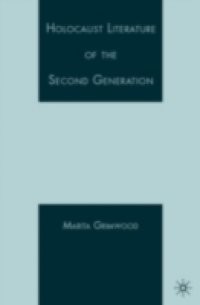Exploring five key texts from the emerging canon of second generation writing, this exciting new study brings together theories of autobiography, trauma, and fantasy to understand the how traumatic family histories are represented. In doing so, it demonstrates the continuing impact of familial and community Holocaust trauma, and the need for a precise, clearly developed theoretical framework in which to situate these works. This book will appeal to final year undergraduates and postgraduate students, as well as scholars in literary and Holocaust-related fields, and an audience with personal and professional interests in the ?second generation?.

